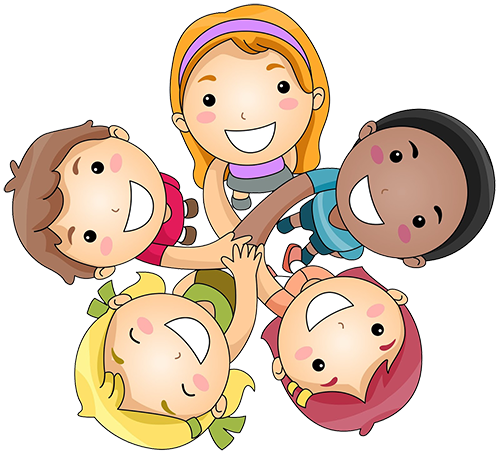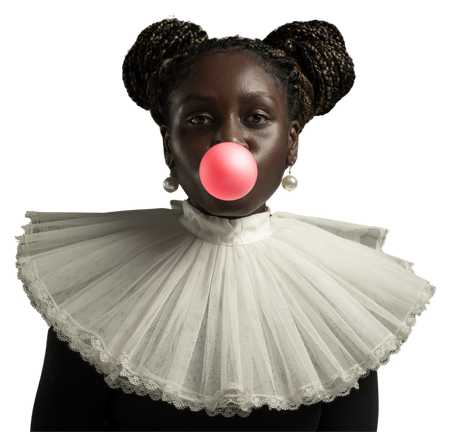Friends are Friends – 12 of the Funniest False Friends
Friends are Friends - 12 of
the Funniest False Friends

Pop quiz time!
Imagine you are going to a friend’s birthday party (in the after COVID time of course) at a Viennese rooftop bar. Would you bring “ein Gift” oder “ein Geschenk”? Or, what if you want to thank your German teacher for being patient and kind, would you say they are “nett” oder “kind”?
Answers: 1) Geschenk, 2) nett
So, how’d you do?
Chances are, you picked up on the trick in our little pop quiz, but if you’re wondering why ein “Gift” is NOT what to bring to a birthday party or why you don’t want to call your teacher “kind” then this post is for you.
As you study German, you’ll notice words that are similar in both spelling and meaning to English ones. These words are known as cognates or word friends. Word friends develop when languages share the same roots. English and German are two such languages belonging to a group that can be traced back to an ancestral Germanic language. Because of this, there are many word friends that exist between them. Thus, English speakers in a German course can easily recognize words such as Mann, Haus, and Lampe because the words are almost identical to their English equivalents. Even words that are not identical—such as essen (to eat) and Apfel (apple)—can be implied from their spelling.
Even so, for as many similarities as Deutsch and English share, there are a lot of differences, and those differences, at best, result in a humorous exchange and, at worst, make for a cringe-worthy social Missverständnis (misunderstanding). If you’ve bravely begun using German in or outside of the classroom, you’ve probably already experienced one if not both of these situations. Just as likely, the culprit of this social pitfall was a word disguised as a cognate but that was, in fact, a false friend.
False friends—like the words “Gift” and “Kind” from our quiz—are German words that look or sound similar but, unlike word friends, mean something entirely different.
Let’s take a look at twelve of the funniest of these false friends that, used improperly, are bound to confuse or amuse. For a concise list of today’s words, scroll to the end.
1) “Das Bad” is not an adjective to describe the state of the U-Bahn’s smell in summer, but rather a noun that means the bathroom (the room where you take a bath/shower). What may also confuse the German language learner about this word is that it is not the one to use if you need the toilet because in Austria the bathroom and toilet are generally in two separate rooms. If you need the toilet, use WC (short for Wasserklosett) or Klo (short for Klosett, used mainly in Austria).
Wo ist das Bad? (Where is the bathroom?)
If you want to say that something is “bad,” use the word “schlecht”.
Der Film war schlecht. (The film was bad.)
2) Contrary to first instinct, the German word bald is not an adjective used to refer to our hair-challenged friends but an adverb that means “soon.”
Bis bald! (See you soon!) Hopefully, we don’t have to wait until one of us is “bald”.
For describing a man who has gone bald, use the phrase: “eine Glatze haben.”
Der Mann hat eine Glatze. (The man is bald.)
3) Bekommen is a verb that tricks many English speakers because it has nothing to do with “becoming.” Bekommen means “to receive” and is a word used often enough that you really should memorize it as soon as possible.
Ich bekomme das Buch. (I receive the book.) Your love of books aside, becoming one would be a very different story.
In order to say something becomes another thing, use the word werden. (Note: this is also the verb used in conjugating future tense.)
Er wird Vater. (He becomes a father.)
4) If you’ve ever checked out at Hofer, you’ve encountered the speed sport that is trying to bag your groceries before they fall off the edge of the cashier’s counter. There is an unspoken expectation that the moment the cashier reads your total, you should pay and move out of the way immediately. Were you to describe these actions, you might be tempted to use the German word fast. However, in German, fast is an adverb meaning “almost” or “nearly.”
Ich bin fast bereit. (I am almost ready.)
Instead, use schnell.
Er läuft sehr schnell. (He runs very fast.)
5) Did you know that knowledge of false friends can save lives? It may be tempting to assume das Gift means exactly the same in German as in English, but falling prey to this deceitful word could make for an awkward party. In German, Gift actually means “poison.” I’m sure you, dear reader, do not want to accidentally poison a friend.
Gift ist kein gutes Geschenk. (Poison is not a good present.)
Since most cultures frown upon giving poison as a gift, use the word Geschenk instead.
Das Geschenk ist sehr toll! (The present/gift is so cool!)
Save lives, people. Save lives.
6) If you tower over the classmates in your German course or happen to know one of those long-limbed people, odds are you (or they) have been called groß before. Don’t worry, it’s not as offensive as it sounds. Groß is another one of those comically confusing cognates, and the bane of tall people’s existence. This little word is an adjective that thankfully doesn’t actually mean “gross” but “big, great, tall.”
Deine Freundin ist groß. (Your girlfriend is tall.)
If you do actually want to say something is “gross,” Austrians tend to use grausig while Germans use ekelig.
Deine Freundin ist nicht grausig. (Your girlfriend is not gross.)
7) In English, hell is the name for a place of the afterlife which is the opposite of heaven. It’s a place of darkness, whereas heaven is a place of light. Ironically, the German word hell is an adjective to describe something that is light (visually, not in weight) or bright.
Meine Wohnung ist hell. (My apartment is well-lit.) If it feels like hell, maybe it’s time to move.
If you do want to discuss the spiritual afterlife, use die Hölle.
Glaubst du an die Hölle? (Do you believe in hell?)
8) As mentioned at the start of this post, the German word Kind does not mean the same as its English cognate. Das Kind means “child/kid.”
Du bist ein Kind. (You are a kid.) Definitely not what you want to call your INNES teacher.
To compliment someone on how nice they are, use the adjective nett, which is funnily enough a false friend for the English word “net.” (That’s not confusing at all.)
Du bist sehr nett. (You are very kind/nice.)
9) Imagine going on a date with your girlfriend or boyfriend. It’s romantic. You just might kiss, and then the mood breaks when you lean in to kissen your partner. Kissen is a noun that means “pillow.” While Kissen are no doubt comfortable, it doesn’t necessarily scream romantic.
Es sind viele Kissen am Bett. (There are many pillows on the bed.)
If you are looking to kiss your date, küssen is the word you want.
Sie küsst ihren Freund. (She kisses her boyfriend.)
10) If you’ve explored Vienna’s gorgeous old town at all, you’ve probably come across the Rathaus building. If you’re new to Deutsch, you might have chuckled at the unfortunate false friend of this word. The Rathaus is not a house for those grimy dark-haired rodents that infest metropolitan areas, nor is it a comparison used to express one’s dislike of politicians. In German Rat actually means “advice/counsel,” so Rathaus is a house where counsel takes place. This 19th century neo-gothic beauty is still in use as Vienna’s city hall.
Das Rathaus ist eine schöne Sehenswürdigkeit. (City Hall is a beautiful tourist attraction.)
When talking about your dislike of sewer-dwelling pests, Ratte is the word you need.
Ratten sind grausig. (Rats are gross.)
11) At first glance, you may be tempted to assume der Rock is a true word friend, but once you hear it in a sentence, you’d realize most women don’t wear rocks (unless, of course, it’s of the jewelry variety). Ein Rock actually means “a skirt” in English.
Sie tragt einen schönen Rock. (She is wearing a pretty skirt.)
Note: To make things even more confusing, Rock CAN also refer to rock music.
Felsen is the German word for “a rock,” and der Stein refers to “a stone.”
Sie sitzt sich auf dem Felsen. (She is seated on the rock.)
12) Wimper does not in fact refer to a pitiful little cry but instead means “eyelash.” This false friend could, however, help you remember the word if you think of the tears that wet your lashes when you do cry.
Sie hat lange, braune Wimpern. (She has long, brown eyelashes.)
If you are describing the verb “to whimper,” use wimmern instead.
Das Baby wimmert, weil es hungrig ist. (The baby whimpers because it’s hungry.)
As funny as false friends can be, we also know they confuse and frustrate many German language learners, but don’t lose hope! You can do this, and we can help. With qualified, compassionate teachers like the ones we have at INNES and Dr. Mitar´s you’ll be well-equipped to face language pitfalls like these false friends.
Come across other funny false friends? Let us know in the comments below, and be sure to hit subscribe to get alerts about our latest tips for tackling this beautifully complex language.
Elizabeth Houser
Explore further

intensive courses
Reach your goals as quickly and efficiently as possible.

company courses
Tailor-made courses for your company

personal training
Private, flexible, and all about you.

university preparation
You need German for university – we’re here to help.

evening courses
Fit your learning around your schedule.

ÖSD exam
Take Austria’s German language exam here at INNES.


